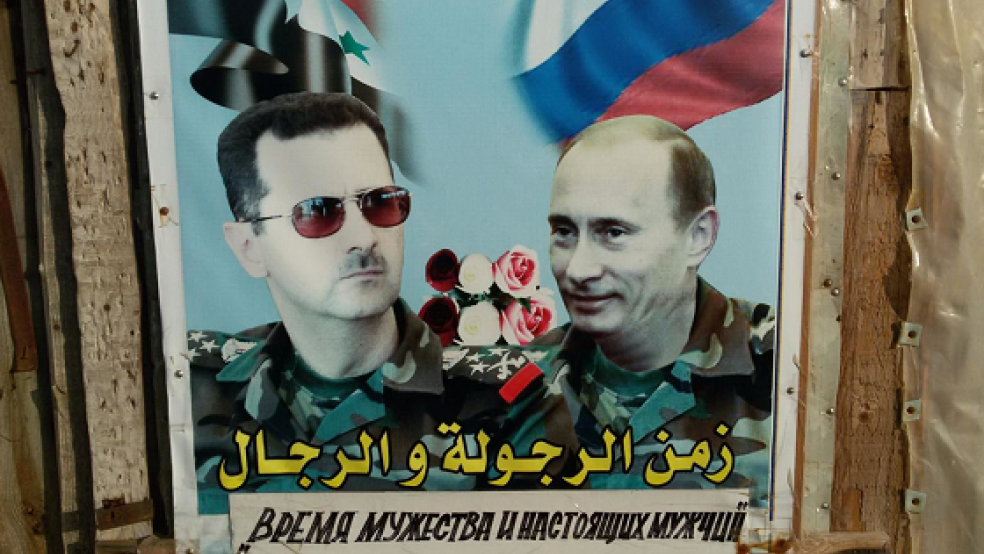Anyone listening to Russian President Vladimir Putin when he spoke at the United Nations General Assembly on Monday can be excused if they thought that the recent appearance of Russian troops and materiel in Syria was part of an effort to beat back the terror group ISIS, which has taken over parts of that country.
Putin cast Russia’s involvement in the complex Syrian conflict as a responsible step by a world power seeking stability. “[I]t's not about Russia's ambitions, dear colleagues, but about the recognition of the fact that we can no longer tolerate the current state of affairs in the world.”
Related: Even in the U.S., Putin Is Crowned Winner in U.N. Showdown
He even suggested the creation of a new international coalition to fight ISIS, comparing it to the Allied effort to fight Nazi Germany in the 1940s.
When the bombing started on Wednesday, Russian military spokesman Igor Konashenkov continued to described the effort as ISIS-focused.
“In accordance with a decision by the Supreme Commander-in-Chief Vladimir Putin, Russian Aerospace Forces planes on Wednesday started an operation to deal pinpoint strikes against ground targets of the IS terrorist group in the territory of the Syrian Arab Republic,” he said, according to the government-run TASS news service.
He went on to describe targets as “military equipment, communication centers, motor vehicles, and munitions and fuel and lubricants depots of the Islamic State terrorists.”
Related: U.S. Program to Train Syria Rebels Is Nearing Meltdown
However, at least according to preliminary reports, Russia’s primary target appeared not to be ISIS, but rebels battling the regime of Syrian dictator Bashar al-Assad.
Multiple media outlets on Wednesday morning confirmed that Russian officials had informed U.S. counterparts of their intention to begin striking targets in Syria with Russian Air Force bombers already in place near the coastal city of Latakia. But the strikes, at first, appeared to be centered on the inland city of Homs, which has no appreciable ISIS presence; instead, the city is a stronghold of rebels attempting to overthrow the Assad regime.
Russia’s apparent expansion of its mandate in Syria will likely surprise nobody. Assad, castigated in the West for indiscriminate bombing of civilians and torture of political opponents, is a close ally of Russia and has requested assistance from the Kremlin. On Monday at the U.N., Putin described the failure to support the regime as an “enormous mistake,” suggesting that allowing Assad to fall would create the same sort of vacuum that led to the ongoing turmoil in Libya.
Related: Obama’s U.N. Speech Masks an Off-Balance Foreign Policy
The Russian bombing began hours after the upper house of the Russian parliament gave Putin unanimous approval to use military force in Syria. The 162-0 vote helped confirm for many that body’s reputation as a rubber stamp for the Kremlin.
Sergei Ivanov, the Kremlin chief of staff, told lawmakers that the use of force would be limited to airstrikes and would not involve ground troops. There are estimated to be several hundred Russian infantry troops on the ground in Syria at present, but their role is believed to be protection of the Air Force units as well as search and rescue operations, should any be necessary.
Russian officials have said that the effort in Syria is in part an effort to protect its citizens from ISIS fighters returning to Russia after fighting in the Middle East and committing terrorist acts at home.
“We are not discussing achieving foreign policy goals or fulfilling the ambitions that our western partners regularly accuse us of,” said Ivanov. “We are exclusively discussing the national interests of the Russian Federation.”





